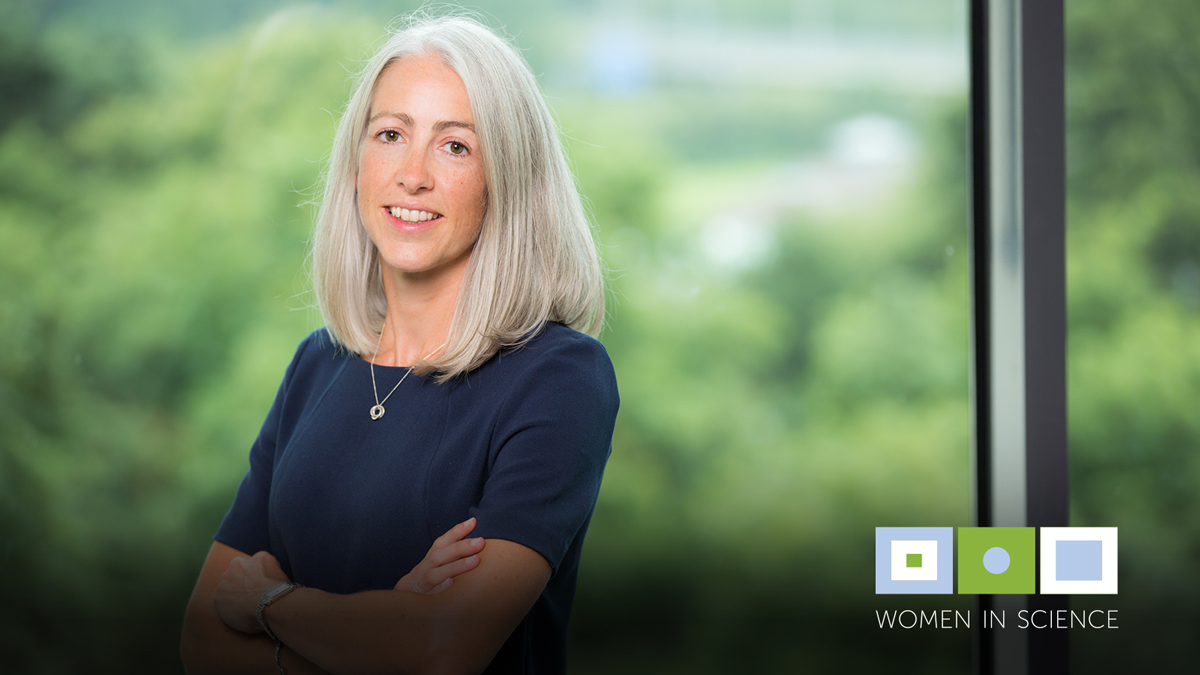Inspiring a new generation of women in pharma

As part of a series of articles highlighting the role of women in the pharma industry, Richard Staines speaks to Louise Houson, MSD’s managing director for UK and Ireland.
Pharma companies have a key role to play in giving women a scientific career, according to MSD’s managing director in UK and Ireland, Louise Houson.
In an interview with pharmaphorum Houson said that her career was a prime example of how choosing a career in pharma can allow women to achieve their professional ambitions, while at the same time managing family life.
Houson got the grades necessary to study biology at Oxford University and chose to work in pharma after deciding that it fulfilled her love for science while allowing her to use her business acumen to benefit society.
Her career has also been helped by choosing to work at MSD (tradename of Merck & Co., Inc. of Kenilworth, New Jersey, USA in the US and Canada) after graduation, according to Houson, who said the organisation has supported her career while also allowing her the time to enjoy family life.
After working her way through the ranks from a job as a sales rep, Houson is now managing director for UK and Ireland after around 21 years working at the company.
Houson said: “When I completed my biology degree, I knew I wanted to have a career that used my science background, but I did not want to be a scientist. Pharma allowed me to combine my business acumen leading teams and draw on my science knowledge.
“I do believe MSD is an organisation that encourages women in science. I am a great example of that. I started as a graduate and worked my way through the organisation while maintaining a great work life balance that has enabled me to be a mum, wife and have a fantastic career at the same time.”
She pointed out that the pharma industry can offer a wide range of roles, from those that are more science-based in R&D, to analysis, helping to manage a supply chain, or working in manufacturing, sales or medical.
Positive role models
Houson is also encouraged by a campaign, led by the Association of the British Pharmaceutical Industry (ABPI), to have the face of a woman scientist printed on the new £50 note.
The new note is due to come out in 2020, and Rosalind Franklin, who helped to discover the structure of DNA, is a front-runner.
The campaign could help to inspire the next generation of women scientists, said Houson.
She said: “I really think it’s important that young females at the start of their career have role models.”
MSD has given Houson the opportunity to build a network of women peers who are able to support her, and she urged other companies and industries to follow suit.
She added: “There is a need for effective networking for women in science as well as access to development programmes. As a female in business you need a strong network – you need to have advocates and sponsors. Organisations also need to support all employees to maintain a work-life balance and working opportunities.”
Houson suggested that building these networks will help to create a virtuous circle that will support women as they progress in their careers.
As more women become successful in pharma, young women at schools and universities will become encouraged to join the industry and have the confidence to apply for more senior roles as their careers develop.
She explained: “I really think it’s important that young women at the start of their career have role models. I am proud that my daughter has a strong role model in her mum and can see that this is achievable.”
Shaping policy
Houson added that there is a buzz about UK life sciences in general at the moment, after the government picked it as a key industry in its industrial strategy.
The government has drawn up a dedicated life sciences strategy, and Houson is enjoying playing a prominent role in the development of the sector.
The cutting-edge science that is going on in the UK means that life sciences and pharma is fulfilling for everyone involved.
But Houson warns that the government must handle Brexit correctly to ensure that the good work can continue, and that the inward investment from big pharma continues.
Despite her concerns MSD still views the UK as a highly influential country in life sciences and will continue to do so after Brexit.
The company is taking a proactive role by working with the government and helping to implement its life sciences industrial strategy.
Discovery centre
MSD is continuing to invest to establish a discovery centre in London, to be close to the capital’s growing influence as a hub for life sciences R&D, and Houson says the company wants to act as a partner to the government as it seeks to develop the industry further.
She pointed out that with the NHS, there is a unique opportunity to do work based around the huge amounts of patient data generated by the organisation.
The NHS-wide genomics database currently being built is an example of the kind of project where data could be used to find new drugs that are more personalised to patients or find new treatments for rare and difficult to treat diseases.
She commented: “MSD is keen to work with the government to ensure there is an effective operating environment for industry and UK patients. We are keen to be involved in the shaping of the UK market.”
All of this bodes well for women who want to get ahead with their careers, according to Houson.
Her advice to young women wanting to get involved is to “go for it”.
Developing a great network of peers able to offer support is really important, particularly early on, Houson added.
“My advice would be to think laterally and get a broad set of experiences. That would place anybody in a great position to lead in this industry.”
About the interviewee
 Louise Houson
Louise Houson
VP & Managing Director, UK & Ireland
Louise Houson is the Managing Director of MSD in the UK, having taken up her position from September 2016. Prior to this, Louise was a Managing Director for MSD in Ireland, during which time she was a Strategy Board Member of the Irish Pharmaceutical Healthcare Association (IPHA) and closely involved in the negotiation of the new pricing and supply agreement for IPHA.
In her role as a Managing Director of MSD in the UK, Louise is a Board member of the ABPI (Association of the British Pharmaceutical Industry) including co-chairing a working group on pricing and reimbursement.
She is also a member of the Life Sciences Industry Steering Group, a cross-government-industry forum focused on the enviornment for life sciences and pharmaceuticals post-Brexit. In addition, Louise is a Board member of the APG (American Pharmaceutical Group).
Louise joined MSD as a graduate in 1997 following a Masters degree in Biological Sciences from Oxford University. Outside of work she enjoys spending time with her husband and three children.












